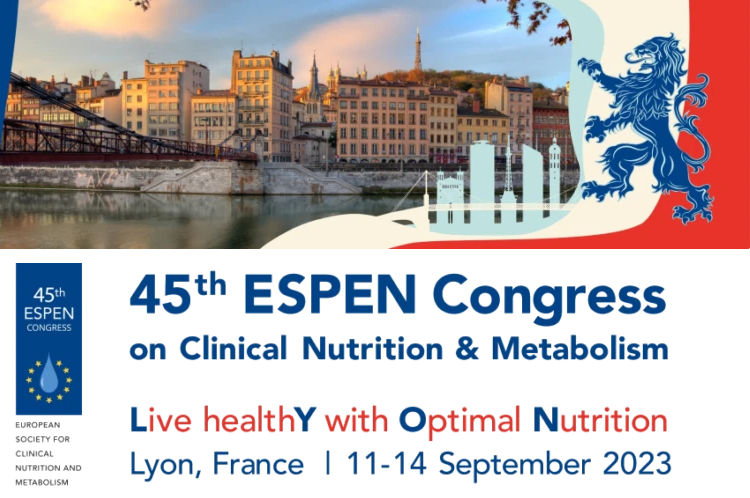Experts highlight the need for tailored nutrition support at ESPEN congress 2023
More than 4,000 global nutrition experts, healthcare professionals and academics are convening at the 45th Annual Congress of the European Society for Clinical Nutrition and Metabolism (ESPEN) in Lyon this week to discuss the potential of optimal nutrition to support people live healthily, as well as the latest developments in clinical nutrition research.
It is estimated that 33 million adults are malnourished, or at risk of disease-related malnutrition in Europe alone, with high-risk populations including cancer and stroke patients, and older adults1. This can be due to decreased food intake and / or increase nutritional requirements linked to the condition or disease2, which often lead to weight and muscle mass loss and ultimately, reduce quality of life.
Diverse needs in disease-related malnutrition
Patient journeys are diverse, and can depend on the condition or disease’s impact on the body, as well as eating problems or challenges people may experience.
For example, during cancer, patients may experience side effects from treatments, such as appetite loss or changes in taste3, leading to reduced food intake, with a domino effect of weight and muscle loss4, negatively affecting tolerance to treatment and patient outcomes5. In older people, disease-related malnutrition can manifest as muscle mass loss6, reducing body strength and walking speed, affecting overall activity and energy levels, and reaching as far as loss of independence. Patients who are recovering from critical illness, such as after a stroke or a major surgery, are often unable to get the nutrition they need through eating and drinking normally7.
For patients with cancer, critically ill patients, as well as older people, who can’t meet their nutritional needs through normal food alone, medical nutrition has been shown to improve clinical outcomes, such as reducing length of hospital stay, and thus positively impact patients’ quality of life8.
That said, it’s clear that there can’t be a “one size fits all” approach in helping diverse patients address their distinct needs. Patient-centric care and the opportunity to improve patient outcomes through tailored nutrition support sits at the core of Nutricia’s satellite symposium at the ESPEN congress on Tuesday, 12th September at 18:00 CEST, under the title “Hitting nutritional targets: No time to Lose! Bridging science into practice”. Bringing together leading international experts including Prof. Elisabeth De Waele, Associate Prof. Barry Laird, Dr. Irene Breton, Prof. Carel Meskers and Associate Prof. Lee-anne Chapple, the session illustrates the importance of tailored nutrition across oncology, recovery and rehabilitation, and critical care practice.
Highlighting the importance of the right nutritional care, Katrien van Laere, Danone’s Senior Vice-President Research & Innovation, Medical & Nutritional Science noted:



